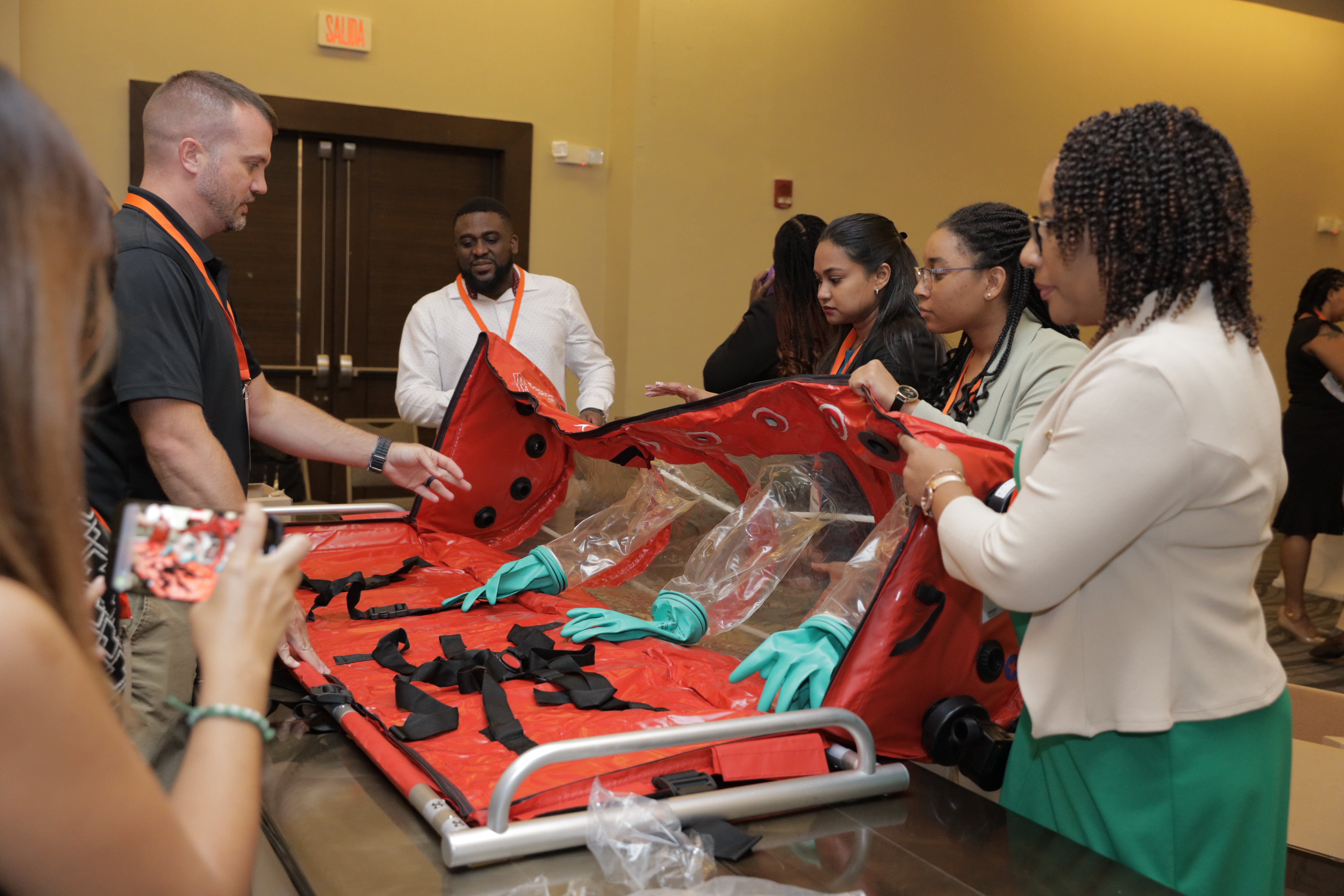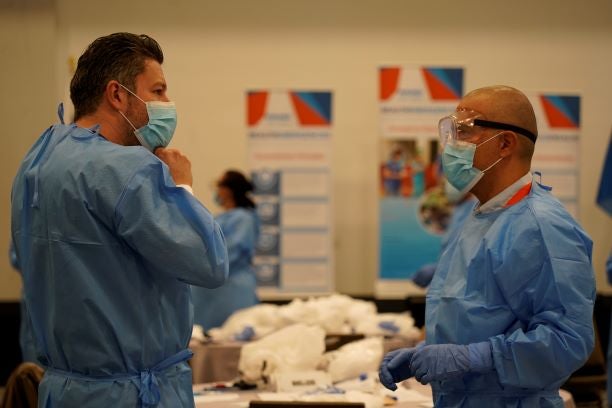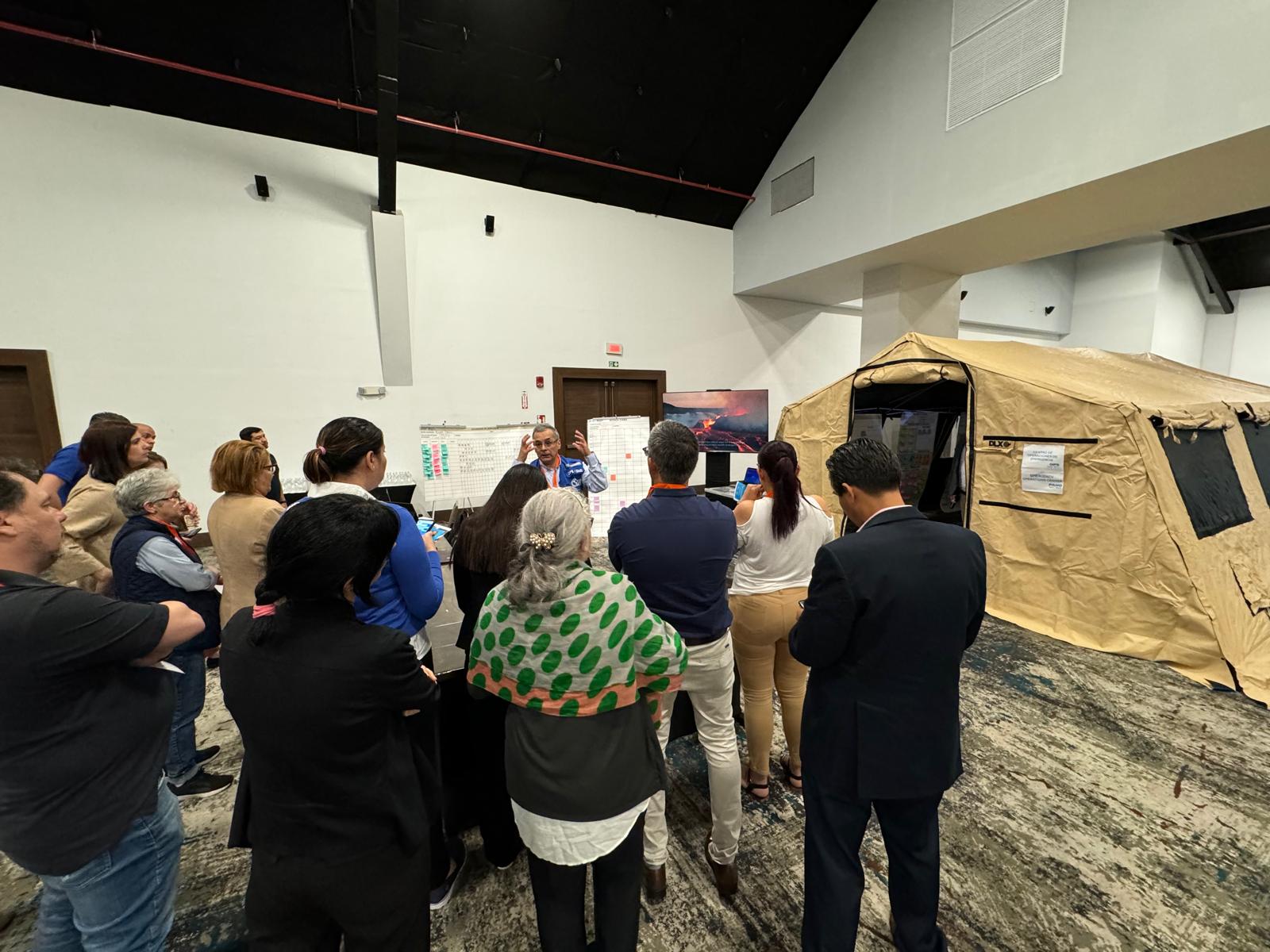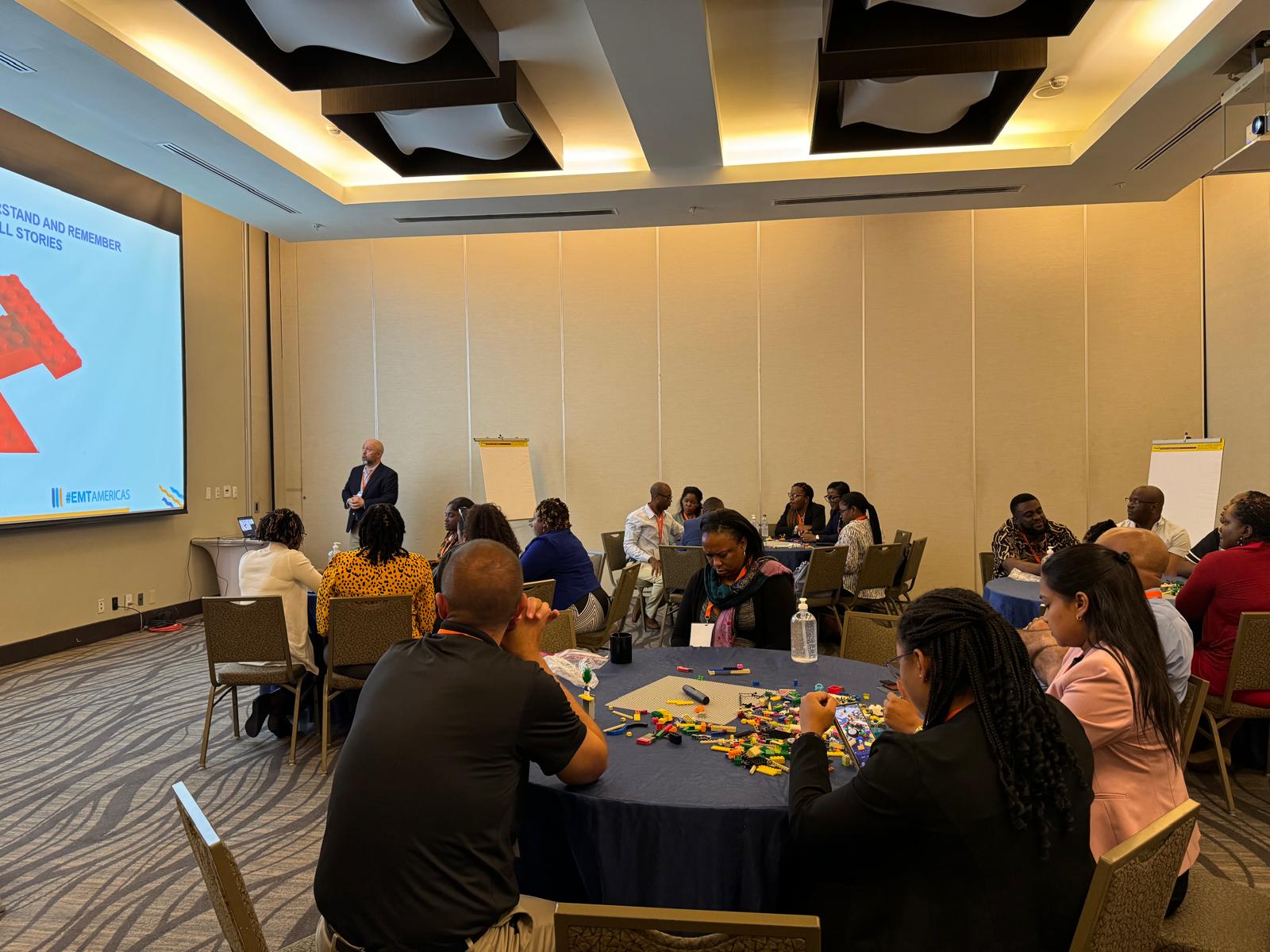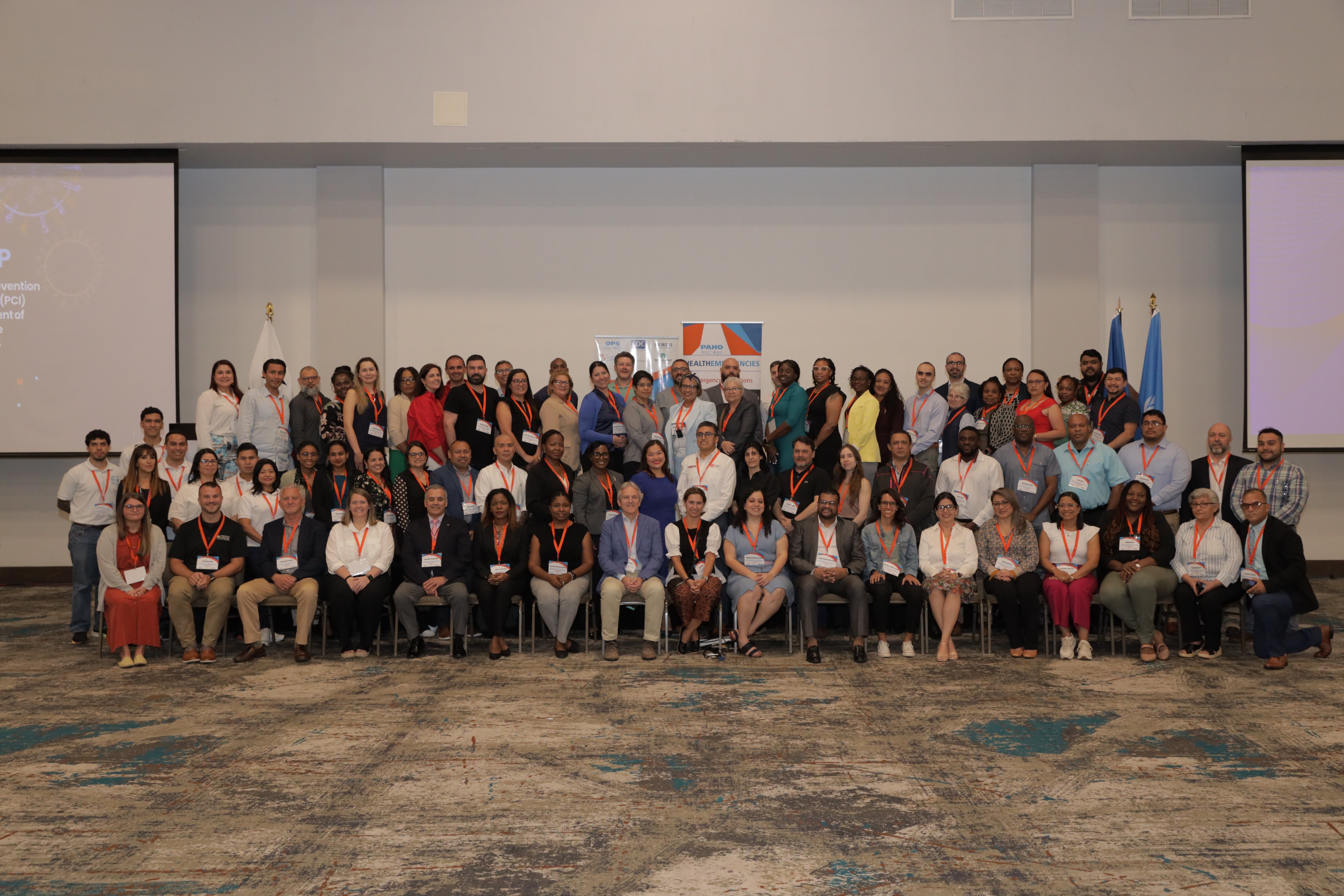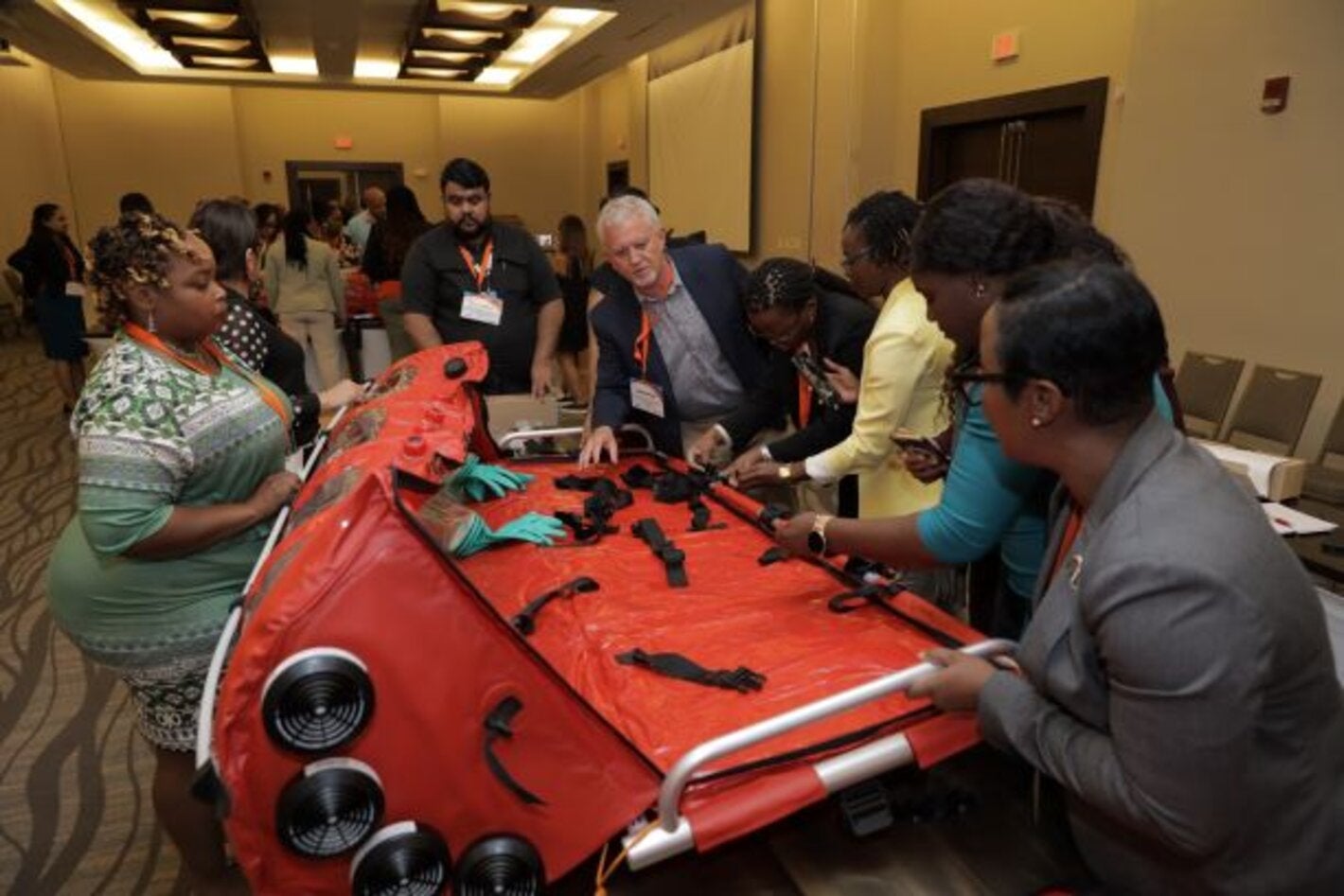
Panama City, September 12, 2024 – The Pan American Health Organization (PAHO), through its Infectious Hazards Management Unit and Emergency Operations Unit of the Department of Emergencies, in collaboration with the National Emerging Special Pathogens Training and Education Center (NETEC), held a three-day regional workshop in Panama City to strengthen medical evacuation capacities of patients with hemorrhagic viral infections and update protocols for the management of severe influenza, including avian A/H5, in Latin America and the Caribbean.
The workshop brought together experts in infection prevention and control, clinical management, emergency logistics, and infectious disease response from 29 countries across the region. The training focused on enhancing strategies for the safe evacuation of patients with severe infectious diseases and bolstering infection prevention and control protocols during medical emergencies.
Key objectives of the workshop included updating the guidelines and logistical procedures for the medical evacuation of patients with infectious diseases, training participants in advanced infection prevention and control principles to ensure safe patient transport, and developing skills in the proper use of personal protective equipment (PPE) and other safety measures.
Additionally, clinical guidelines for managing severe influenza were reviewed and updated, incorporating the latest recommendations for avian influenza prophylaxis.
“This workshop has been an excellent opportunity to bring together a multidisciplinary team and comprehensively address emergency preparedness, including epidemics and pandemics. We often talk about preparedness plans, surveillance, and laboratory capacity, but it’s essential to remember that, at the start of an outbreak, we frequently have a window of opportunity to contain and halt the spread in its early stages. Taking advantage of this early phase can make the difference in containing pathogens before they spread,” said Dr. Andrea Vicari, Chief of PAHO’s Infectious Hazards Management Unit.
The workshop included a combination of theoretical and practical sessions, using interactive methodologies such as simulations, group exercises, videos and demonstrations. The practical activities focused on the correct use of PPE, decontamination and waste management, ventilatory support in critical patients and the use of portable isolation units. There was also a real-time demonstration of how to set up an Emergency Operations Center to deal with an outbreak or emergency situation in the field.
This workshop highlights the importance of coordination, experience sharing, and the discussion of response procedures. Through a joint effort, PAHO, NETEC, and the participating countries are strengthening knowledge, preparedness, and response capabilities to address health emergencies in the region.
Dr. Leonardo Hernández, Head of PAHO’s Emergency Operations Unit, emphasized that "an effective emergency response encompasses technical, logistical, and operational aspects. The key to ensuring efficient service to the population lies in having personnel trained not only in their area of expertise but also in working in coordination with other teams. This builds a system capable of responding efficiently and cohesively to any critical situation."
At the closing of the workshop, countries from the region reaffirmed their commitment to continue enhancing their preparedness, response, and management capacities in public health emergencies. PAHO will continue working with countries across the region to implement the acquired knowledge and develop stronger national policies, ensuring a timely and effective response to health emergencies.

